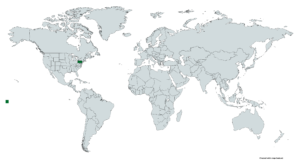Millennial Sister Circle

The Black Women’s Health Alliance, the new name of the Philadelphia Black Women’s Health Project, was established by 100 Philadelphia women who attended the First National Conference on Black Women’s Health Issues in Atlanta, Georgia in 1983. The ladies recognized that the “voices” of African-American women were largely unheard in the Philadelphia health community and mobilized their efforts to establish the Philadelphia Black Women’s Health Project as the “voice.” In 2004, the name of the Philadelphia Black Women’s Health Project was changed to “Black Women’s Health Alliance.” The Black Women’s Health Alliance continues the legacy as the “voice” of African-American women in the Philadelphia health community.
Black Women’s Health Alliance’s (BWHA) mission is to improve health care outcomes and reduce health disparities for African American and other minority women and families in Philadelphia through advocacy, education, research and support services.
The Millennial Sister Circle Initiative of the Philadelphia Black Women’s Health Alliance was inspired by Black Millennial women of Philadelphia who voiced a need for a program to support the needs of their age group, 20-39 years of age. The Millennial women were familiar with the improved health outcomes of more than 310 women, aged 40-75 years of age, who participated in the PBWHA Prime Time Sister Circle Program (PBWHA/PTSC) from 2011-2018.
Covid-19 is a magnifying glass that has highlighted the larger pandemic of health disparities and racial and systemic inequalities that have existed in the US for more than 100 years. Indeed, studies reveal striking numbers:
- African American women are 60% more likely to have high blood pressure compared to non-hispanic white women (OME, 2020)
- African American women are 1.8 times more likely to have diabetes than white women (NCHS, 2014)
- African American women are more likely to die from breast and cervical cancer, although not more likely to be diagnosed with it (NCHS, 2013)
- Based on six-year trends ending in 2017, if rates of HIV infections continue, 1 in 48 African American women will be diagnosed with HIV in their lifetime (CDC, 2019).
For these purposes, the Millennial Sister Circle seeks to increase knowledge and improve attitudes and behaviors, empowering young African American women to take charge of their health outcomes and reduce their emotional and physical health disparities. The project will build off of the success of the Prime-Time Sister Circle Curriculum, an existing BWHA program supporting women between 40-75 years of age.
Beneficiary group: Black Millennial women of Philadelphia
Demographic: Female, aged between 20-39
Budget: $25,000
Location: Philadelphia, US
- Empower women to make health their first priority by taking care of themselves first;
- Motivate women to improve their health outcomes by reducing and eliminating their risk factors for chronic illness by increasing knowledge, improving attitudes, and changing behaviors in targeted risk factor areas (i.e. unmanaged stress, poor nutrition, sedentary behavior and failure to prioritize their health);
- Reduce risk factors for obesity and chronic illness, especially uncontrolled hypertension, through a holistic approach involved a focus on ‘Mind, Body and Spirit’;
- Teach women to live daily lives of primary and secondary prevention;
- Assist women to take ownership of their health in partnership with their primary care team.
- Develop a Millennial Sister Circle Curriculum (Face-to-Face and Virtual) adapted to the Prime-Time Sister Circle Curriculum, Gaston and Porter Health Improvement Center, Inc.
- Conduct research based Millennial Sister Circles in 5 cities in the US (i.e. Philadelphia, Oakland, Camden, Wilmington and Chicago)
- Develop a report and circulate findings
Read more about our partnership
News

Challenge winners pioneer eco-friendly sanitary pads and climate resilience in medicinal plants

Winning Chemistry projects tackle waste management and extreme climate conditions with innovative real-world solutions and a focus on gender equity

Five Pioneering Women Scientists from the Global South Honored with the 2025 OWSD-Elsevier Foundation Award for Transformative Health Research





















